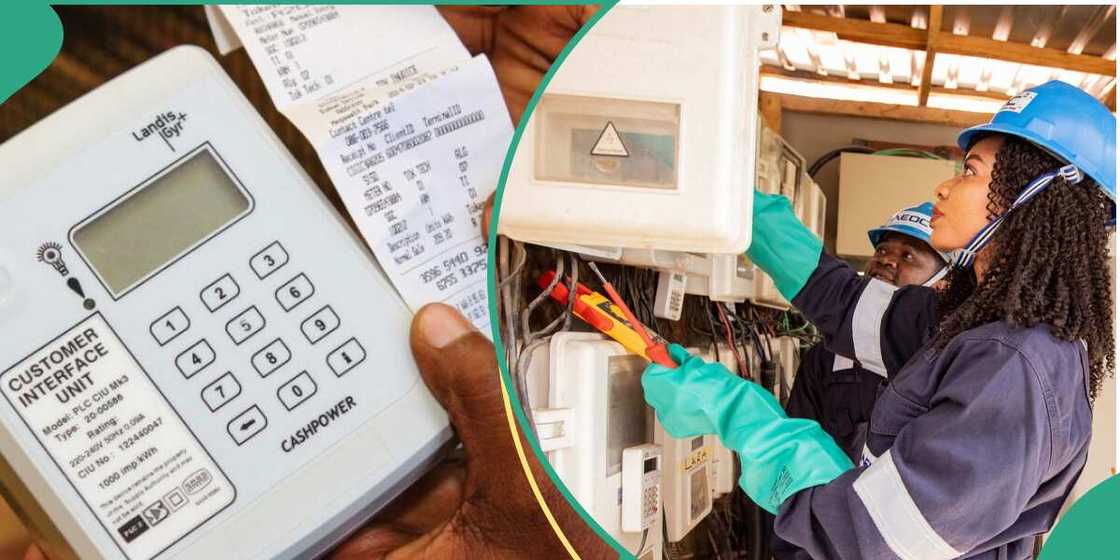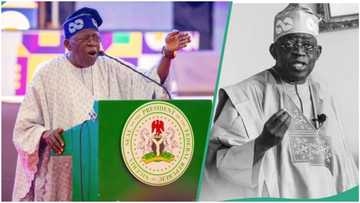Power Generating Company Moves to Write Off N200 Billion Debt From Electricity Operators
- The Niger Delta Power Holding Company (NDPHC) has said it may be compelled to write off over N200 billion in debt owed by operators
- The company said the development will worsen as the Nigerian Bult Trade Electricity continues to pay the operators, leading to more debt
- It said the debt has put a heavy financial burden on its operations as it is finding it hard to cope
PAY ATTENTION: Leave your feedback about Legit.ng. Fill in this short form. Help us serve you better!
Legit.ng’s Pascal Oparada has reported Tech, Energy, Stocks, Investment, and the Economy for over a decade.
The Niger Delta Power Holding Company (NDPHC) has disclosed that it may be forced to write off more than N200 billion owed to it by electricity operators.
The development is because the debt continues to accrue as the Nigerian Bulk Traders (NBET) pays the operators.

Source: UGC
New power station to commence operation

Read also
FG fixes date to roll out vehicles running on cheaper fuel, gives orders to filling stations
Chiedu Ugbo, the NDPHC’s managing director, disclosed this during an oversight visit by the House of Representatives Committee on Power to major power plants in the country.
Ugbo attributed the write-off to the firm’s financial limitations, which stalled it from undertaking two heavy projects simultaneously.
The NDPHC boss assured the lawmakers that Gbarain Power Plant would soon commence operations, stating that cash constraints contributed to the delay.
He said:
“We had to put a unit to the grid, and unfortunately, the temporary power control module put in place got burnt,”
According to reports, Ugbo told lawmakers that the pipeline project connected to the power plant had been completed and that the community was safe for investment.
He disclosed that all engineering and assets are well-preserved, and the plant is properly maintained.
FG owes N100 billion in electricity debt
The development follows a report that the Nigerian government owes distribution companies about N100 billion in electricity debt.
The Executive Director of the Association of Nigerian Electricity Distributors, Sunday Oduntan, revealed that the government needs to play its part in providing a conducive environment for energy distributors.
A report by Legit.ng said that the Nigerian government paid over $120 million to offset part of the debts owed to gas firms to enhance electricity generation.
The Director of Decade of Gas Secretariat, Ed. Ubong confirmed this at the ongoing 7th edition of the Nigeria International Energy Summit (NIES 2024) in Abuja on Thursday, February 29, 2024.
He said the government is also working on a scheme to curtail failures in the system.
New tariff increase puts a burden on consumers
In April 2024, the Nigerian government implemented a sweeping tariff increase of over 300% for some consumer categories.
The federal government announced an increment in the electricity tariff through the Nigerian Electricity Regulatory Commission (NERC), which customers under the band A classification will have to pay.
Musliu Oseni, the vice chairman of the NERC, made the increment known at a press conference in Abuja on Wednesday, April 3. Oseni said customers will now have to pay N225 kilowatt per hour instead of N66, which was paid before.
FG gives orders to reduce power supply to 3 African countries
Legit.ng previously reported that the Nigerian Electricity Regulatory Commission (NERC) is set to enhance power supply to domestic consumers following its orders directing the System Operator (SO) to cap supplies to international customers by 6 percent of domestic supplies.
The affected countries include Togo, Benin Republic and the Niger Republic.
The development comes amid a high level of indebtedness and non-remittance of electricity bills supplied to the countries over the years.
PAY ATTENTION: Unlock the best of Legit.ng on Pinterest! Subscribe now and get your daily inspiration!
Source: Legit.ng




